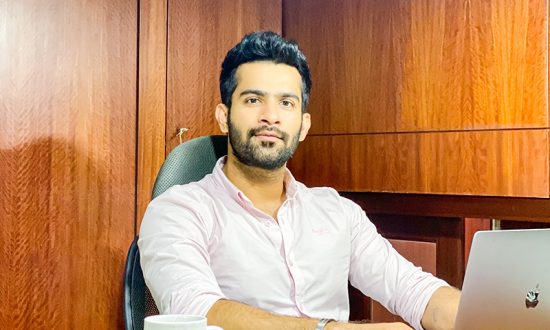Husain Khatumdi is the Co-Founder and Managing Director of Ekostay, a homestay venture, and has served in those positions since November, 2017. Husain has over 5 years of experience in a broad range of leadership roles across the hospitality and real estate sector. Through the course of his career, he has managed and developed scalable businesses, with a deep understanding of the global and national hospitality and real estate market.
Tourism is important for the progress of all economies around the world. Tourism is also known to boost the revenue of the country. It also helps in creating thousands of jobs, helps in developing the infrastructure of the country and creates a sense of cultural knot between the foreigners and citizens. It basically contributes towards the complete growth and development of a country. Studies have shown that taking occasional vacations results in physical and mental health benefits. People who take some time away from their daily jobs have lower stress, a better outlook on life and more motivation to achieve goals.
Global tourism has grown steadily over years. As more nations evolve and develop and connectivity around the world becomes easy, travelling has also become easy. Travelling has really evolved with the advent of technology as technology has made it easier for people to plan the trip (as it saves time and helps in efficient planning). Also, young people have always had a sense of adventure and desire to travel and with the help of tech they can now do it hassle free. In today’s scenario, these are huge considerations for hoteliers.
Moreover, the tourism industry is a highly researched industry. A person deciding to travel to a new place, stay in a good and affordable homestay, eat local food would only be able to do so with research. Enter augmented reality which has truly brought a revolution to the travel industry. Augmented Reality (AR) mixes the real world with the reel world and allows you to place digital media in front of people just like it is real. In simple words, it showcases digital information into existing reality. Earlier people use to take the help of travel agents for any foreign trip they planned. These days, people prefer making the itinerary and organize everything by themselves, all thanks to AR.
Augmented Reality (AR) is like a traveler’s new friend in the current scenario! It brings in several added advantages in the travel industry. Immersive navigation places the tourist right in the location as if they are walking there live at the moment – this helps in easing the planning journey and boosting travel experiences. Interactive elements enable the user to point their smartphone at a building or landmark and learn more about it, in real-time. This allows homestay and hotel owners to conduct virtual tours of their space and other amenities with a single tap on the user’s mobile screen. Moreover, a user may get all the details of a restaurant like its reviews, menus, table availability, and many more things by just pointing their phone at that restaurant. From a tourist’s perspective, they may get all the information of the historical landmark just by pointing the phone/tablet towards it. It helps the tourists to enhance the entire travel experience and allow tourists to get all the information they need of a particular place. AR also has many other applications such as AR museums, improving local transit and even conducting full-fledged city tours right from the user’s home, by seeing what someone else is seeing who is actually physically at the location.
Just like AR, Virtual Reality (AR) allows users to explore full 360 degrees of a particular area. While AR places the reel world in the real world, VR places you in a fully virtual world. Virtual travel helps visitors experience destinations that are remote and difficult to visit. This is a big advantage for people who would not otherwise be able to travel or visit any of these places in person. VR fills this gap and makes them feel they visited the location, without having personally visited it. This especially helps people with medical problems such as some phobia or even disability who cannot make it in-person, allowing them to not miss-out. While viewing through a particular device, it changes a person’s perception of their physical surroundings. Due to this feeling of physical presence, often tourists also can make better decisions of something he/she sees via VR. For example, walking around a hotel room, and seeing what kinds of views it can offer, or what is the exact layout of the room, makes the booking process much more comfortable and attractive. A virtual tour of a place can help you find some easter eggs and be prepared to not miss certain things that we might miss in person, and even help set expectations right.
Even though AR and VR are similar kinds of technology, there are some key differences between them. The difference is AR just augments the real-world environment by adding digital components to it. AR can be experienced through devices such as smartphones or tablets. However, VR requires the purchase of virtual reality headsets to truly experience it in a good way. Since these products are relatively expensive, compared to the mobile phones and tablets which are easily available, AR is gaining a lot more traction and in-fact all brands are working actively on it in some way or the other. AR also functions with few other mobile-based technologies such as GPS tracking and cameras. Today, both AR and VR are actively being worked on and are a preferred research area for organizations in all different industries.
Travelling absolutely enriches and broadens your outlook. Then why not take full advantage of the means and technology to take the best trips of our lives. All in all, to have the perfect customized travel experience Indian consumers are now choosing personalized and unique experiences and thanks to these technological advancements, these have been made possible.






